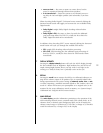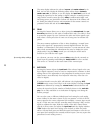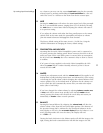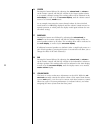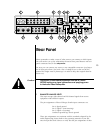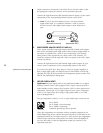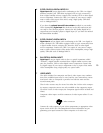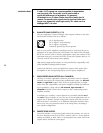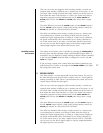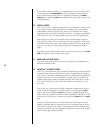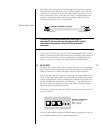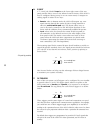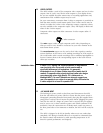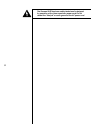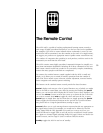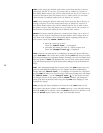
27
Thus you can watch one program while recording another; or watch one
program while sending a different one to another part of the house; or you
can watch what is being recorded from either another part of the house or
from within the main room. But there is a limit: you cannot have three in-
dependent programs running simultaneously on the main, remote and
record paths, because the remote and record paths always share a single
source.
The main difference between the
remote output and the record outputs is
that the remote outputs include a high quality analog volume control; the
record path remains at a fixed, line level at all times.
The AVP2 can distribute either analog or digital sources to a remote zone
or recording devices without your having to think about the details of
whether the signal originates from an analog or a digital source. Multichan-
nel signals automatically will be downmixed to two analog channels for
use in the remote zone; if you have a second home theater in the house,
you can even use the AVP2’s digital output to forward the original multi-
channel digital signal to that remote home theater “zone.”
controlling remote
zone volume
The volume of the remote zone is controlled by selecting the remote path on
the front panel and then adjusting volume conventionally, using the knob; al-
ternatively, it may be adjusted by simply sending an infrared volume command
to the rear panel ir input, when that input is configured to receive only re-
mote
zone signals.
If you are using a remote zone, connect either the balanced (preferred, espe-
cially for long runs of cable) or the single-ended remote outputs to the ampli-
fier serving your remote zone.
11 RECORD OUTPUTS
The AVP2 includes a second signal path (beyond the primary one used in
the main listening room) that can feed a remote zone, or a record path for
making recordings, or both. There is one limitation: the remote and record
outputs always contain the same signal.
Thus you can watch one program while recording another; or watch one
program while sending a different one to another part of the house; or you
can watch what is being recorded from either another part of the house or
from within the main room. But there is a limit: you cannot have three in-
dependent programs running simultaneously on the main, remote and
record paths, because the remote and record paths always share a single
source.
The main difference between the remote output and the record outputs is
that the remote outputs include a high quality analog volume control; the
record path remains at a fixed, line level at all times.
The AVP2 can distribute either analog or digital sources to a remote zone
or recording devices without your having to think about the details of
whether the signal originates from an analog or a digital source. Multichan-
nel signals automatically will be downmixed to two analog channels for
use in the remote zone; if you have a digital recorder such as a DVD-RW,
you can even use the AVP2’s digital output to copy the original multichan-
nel digital signal to your recorder.



